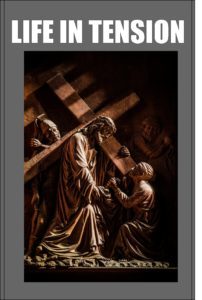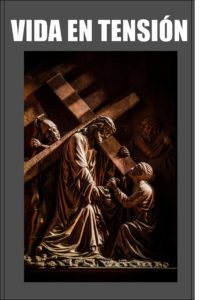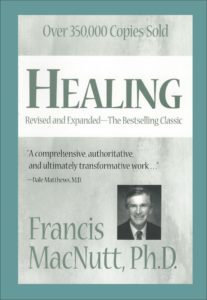Stephen W. Hiemstra's Blog, page 156
June 14, 2020
Sanctification Prayer

By Stephen W. Hiemstra
Merciful God,
I praise you for the gift of your law and your provision of grace through Jesus Christ that we might approach you in prayer.
You are the God of mercy and grace, who is slow to anger, abounding in love, and faithful.
There is none like you; may I ever model myself on your immutable character remembering your law, being ever-mindful of your grace, and enjoying the support of your church.
May I be quick to share your mercy, grace, and love with those around me in thought, word, and deed through the power of the Holy Spirit, and in Jesus’ name, Amen.
Sanctification Praye
Also see:
Believer’s Prayer
Other ways to engage online:
Author site: http://www.StephenWHiemstra.net
Publisher site: http://www.T2Pneuma.com.
Newsletter: https://bit.ly/Ready_2020
The post Sanctification Prayer appeared first on T2Pneuma.net.
Oración de Santificación

Por Stephen W. Hiemstra
Misericordioso Dios,
Te alabo por el don de tu ley y tu provisión de gracia a través de Jesucristo para que podamos acercarnos a tí en oración.
Eres el Dios de la misericordia y la gracia, quien es lento para la ira, abundante en amor, y fiel.
No hay nadie como tú; que pueda modelarme siempre sobre tu inmutable carácter recordando tu ley, teniendo siempre presente de tu gracia y disfrutando del apoyo de tu iglesia.
Que pueda ser rápida a compartir tu misericordia, gracia, y amor con aquellos rodéanme en pensamientos, palabras, y obras, a través del poder de tu Espíritu Santo, y en el nombre de Jesús, Amén.
Oración de Santificación
Ver también:
Oración del Creyente
Otras formas de participar en línea:
Sitio del autor: http://www.StephenWHiemstra.net,
Sitio del editor: http://www.T2Pneuma.com.
Boletín informativo: https://bit.ly/Ready_2020
The post Oración de Santificación appeared first on T2Pneuma.net.
June 12, 2020
God’s Core Values

The LORD, the LORD, a God merciful and gracious,
slow to anger, and abounding in steadfast love and faithfulness,
(Exod 34:6)
By Stephen W. Hiemstra
Immediately following the giving of the Ten Commandments, God proclaims his attributes to Moses, much like a herald might introduce the titles and accomplishments of an important dignitary. Scripture underscores the importance of these attributes by repeating them, almost word for word, in Psalm 86:15 and Psalm 103:8, Joel 2:13, and Jonah 4:2. In the parallel context of the giving of the Law (Deut 4:31), only mercy is cited, underscoring its primacy in the Jewish understanding of God’s character.
The emphasis on mercy and the de-emphasis on faithfulness (or truth) in Exodus 34:6 suggests that God is soft-hearted. The passage mentions mercy, gracious, slow to anger (or long nostrilled), abounding in love (hesed), and faithfulness (emeth). Hesed love in the Hebrew is best translated as covenantal love because of the context here as God just delivered the Ten Commandments to Moses. “Emeth” is often translated as faithfulness, but it also means truth. When Apostle John describes Jesus as full of grace and truth (John 1:14), he is making a claim of divinity with reference to Exodus 34:6.
Psalm 86 repeats each of the five words of Exodus 34 in the same order. Psalm 103 repeats the first four words, but drops faithfulness. Joel 2 repeats the first five words, but substitutes “relents over disaster” for faithfulness. Jonah 4 likewise substitutes “relents over disaster” for faithfulness but swaps grace and mercy. The emphasis on mercy and the de-emphasis on faithfulness in God’s attributes is important because they provide guidance on how to interpret law especially when conflicts arise or when a new context requires interpretation.
The primacy of mercy in the Jewish understanding of God’s character figures prominently in the story of the Prophet Jonah. Jonah refused God’s call to preach repentance to the sinful people of Nineveh (a city whose ruins lie cross the Tigris river from Mosul, Iraq; Nahum 1:1). Rather than answer God’s call, Jonah boarded a ship going the opposite direction (Jonah 1:2–3). After being caught in a storm, thrown overboard, and rescued by a whale, Jonah reluctantly responded to God’s call, traveled to Nineveh, and preached repentance to the Ninevites. When the Ninevites responded to his preaching, turned from their sin, and begged God to forgive them (Jonah 3:9-10), God relented from destroying the city.
Showing mercy to Nineveh seemed unjust to Jonah and it made him angry because Nineveh was the hometown of Sennacherib, king of Assyria who conquered Judah and made King Hezekiah his vassal (Isa 36-37), so Jonah:
prayed to the LORD and said, O LORD, is not this what I said when I was yet in my country? That is why I made haste to flee to Tarshish; for I knew that you are a gracious God and merciful, slow to anger and abounding in steadfast love, and relenting from disaster. (Jonah 4:2)
Jonah knew God’s attributes (citing Exod 34:6) and did not want to give the hated Ninevites the opportunity to repent and have God forgive them, as he knew God would.
Mercy is first among God’s attributes because as human beings we are born in sin and must acknowledge our sin before we feel any need for God. Our need is like that of a young man who, not liking the newly elected president, leaves the country, and tears up his passport; without being issued a new passport, he cannot return home. In our case, our passport into the kingdom of God is his mercy, without which we cannot experience God’s other attributes.
God’s Core Value
Also see:
Preface to a Life in Tension
Other ways to engage online:
Author site: http://www.StephenWHiemstra.net
Publisher site: http://www.T2Pneuma.com
Newsletter: https://bit.ly/Release_2020
The post God’s Core Values appeared first on T2Pneuma.net.
Los Valores Centrales de Dios

El SEÑOR, el SEÑOR, Dios compasivo y clemente,
lento para la ira y abundante en misericordia y verdad (fidelidad);
(Exod 34:6 )
Por Stephen W. Hiemstra
Inmediatamente después de la entrega de los Diez Mandamientos, Dios proclama sus atributos a Moisés, igualmente como un heraldo podría presentar los títulos y logros de un dignitario importante. Las Escrituras subrayan las importancia de estes atributos al repetirlos, casi palabra por palabra en Salmo 86:15 y Salmo 103:8, Joel 2:13, y Jonás 4:2. En el contexto paralelo en la entrega de la Ley (Deut 4:31), solo la misericordia se cita, subrayando su primacía en la comprensión judía de la carácter de Dios.
El énfasis de la misericordia y la falta del énfasis de la fidelidad (o la verdad) en Exodo 34:6 sugiere que Dios es de un corazón blando. El pasaje menciona la misericordia, la gracia, la lentitud de la ira (o la nariz larga), la abundancia de amor (hesed) y la fidelidad (emeth). Amor de hesed en el hebreo se traduce mejor como amor de pacto debido en el contexto aqui, ya que Dios acaba de entrega el Diez Mandamientos a Moisés. Emeth a menudo se traduce como fidelidad, pero también significa verdad. Cuando el Apóstol Juan describió a Jesús como lleno de gracia y verdad (John 1:14), está haciendo un reclamo a divinidad con referencia de Exodo 34:6.
Salmo 86 repite cada una de las cinco palabras de Exodo 34 en el mismo orden. Salmo 103 repite las primeras cuatro palabras, pero deja caer la fidelidad. Joel 2 repite las primeras cinco palabras, pero substituye “se arrepiente de infligir el mal” para fidelidad. Jonás 4 también substituye “se arrepiente de infligir el mal” para fidelidad pero intercambia gracia y misericordia. El énfasis de la misericordia y la falta del énfasis en la fidelidad en los atributos de Dios es importante porque brindan orientación sobre cómo interpretar la ley especialmente cuando surgen conflictos o cuando un nuevo contexto require interpretación.
La primacía de misericordia en la comprensión judía del carácter de Dios ocupa un lugar destacado en la historia del Profeta Jonás. Jonás rechazó el llamado de Dios para predicar el arrepentimiento a la gente pecadora de Nínive (una ciudad cuyas ruinas se encuentran cruzando el río Tigris desde Mosul, Irak; Nahum 1:1). En lugar de responder al llamado de Dios, Jonás abordó un barco en dirección opuesta (Jonás 1: 2–3). Después de ser atrapado en una tormenta, arrojado por la borda, y rescatado por una ballena, Jonás respondió a regañadientes al llamado de Dios, viajó a Nínive y predicó el arrepentimiento a los Ninivitas. Cuando los Ninivitas respondieron a su predicación, se apartaron de su pecado, le rogaron a Dios que los perdonara (Jonás 3: 9-10), Dios cedió de destruir la ciudad.
Muestrando misericordia a Nínive pareció injusto a Jonás y ello le enfureció porque Nínive era la ciudad natal de Senaquerib, el rey de Asiria quien conquistó a Judá e hizo del rey Ezequías su vasallo (Isa 36-37), así que Jonás:
Y oró al SEÑOR: ¡Ah SEÑOR! ¿No era esto lo que yo decía cuando aún estaba en mi tierra? Por eso me anticipé a huir a Tarsis. Porque yo sabía que Tú eres un Dios clemente y compasivo, lento para la ira y rico en misericordia, y que Te arrepientes del mal anunciado. (Jon 4:2)
Jonás conocía los atributos de Dios (citando Exodo 34:6) y no quería dar a los odiados Ninivitas la oportunidad de arrepentirse que Dios los perdonara, como sabía que Dios lo haría.
La misericordia es la primera entre los atributos de Dios porque como seres humanos nacimos en pecado y debemos reconocer nuestro pecados antes de sentimos cualquiera necesidad para Dios. Nuestra necesidad es como la de un joven que, al no gustarle el presidente recién elegido, abandona el país y haga en pedazos su pasaporte; sin que se le emita un nuevo pasaporte, no puede regresar a casa. En nuestro caso, nuestra pasaporte en el reino de Dios es su misericordia; sin la cual no podemos experimentar los otros atributos de Dios.
Los Valores Centrales de Dio
Ver también:
Gospel as Divine Template
Otras formas de participar en línea:
Sitio del autor: http://www.StephenWHiemstra.net,
Sitio del editor: http://www.T2Pneuma.com.
Boletín informativo: https://bit.ly/Ready_2020
The post Los Valores Centrales de Dios appeared first on T2Pneuma.net.
June 10, 2020
Water Cooler Observations, June 10, 2020

By Stephen W. Hiemstra
When I worked with psychiatric patients as a chaplain intern at Providence Hospital, I became convinced that faith in God minimizes the prospect of suffering from mental illness.
For afflictions, like schizophrenia, that are triggered by trauma, faith helps to cushion the trauma reducing the likelihood of tripping the trigger. In my experience, two people may experience the same trauma (a Gethsemane moment) where one is scarred for life and the other not, having simply strengthened their faith.
For afflictions, like bipolar disorder, that have genetic component, having a firm grasp on reality helps the patient cope with the disorder directly, minimizing the effect of mood swings on behavior. Thomas Jefferson is believed to have been bipolar, yet he managed to cope without medication by keeping lists of his activities.
For addicts, faith in God serves to displace an attachment to destructive things with an attachment to the only true lover of our souls (May 1988, 146). It is common among those able to kick their habit to report that a spiritual awakening accompanied their recovery—I have an aunt who fits this description.
I believe that my conviction about faith has served to shield me from the corona craziness over the past few weeks. How about you?
Local Statistics
With the Memorial Day holiday, re-opening of the economy, and recent demonstrations, the potential for re-emergence of the corona virus has grown dramatically in the last several weeks. While the evening news announced last night (6/7/2020) that twenty states have reported increase in the number of cases, the evidence in Virginia statistics is unclear. In both Fairfax and Prince William Counties, corona virus mortality rates peaked in early May and have have fallen since then.
Elderly at Risk
The local statistics provide interesting insights into the virus. In Fairfax County, 91 percent of the deaths have been for people ages 60 and above with 59.7 percent of all deaths of people over 80 years old. For Prince William County the same figures are 87.4 percent and 42.2 percent as of June 8. The mortality rate for people over 80 years old is 33 percent in Fairfax County and 29 percent in Prince William County. In other words, about one in three elderly people inflected with corona virus will die.
Hispanics at Risk
About half (42.2 percent) of the corona virus cases in Fairfax County are among Hispanics, but they represent only 11.2 percent of the deaths. In Prince William County about 38.5 percent of the cases are Hispanic, but they represent 26.7 percent of the deaths. We might infer from these statistics that Hispanics in Fairfax County are younger than those in Prince Williams on average, since so many of the deaths arise among the elderly.
Healing Prayer
Holy Father, Great Physician, Spirit of Truth,
We praise you, Lord,
for you are good—
your mercy extends to us
even as we are ungrateful and undeserving.
We confess
that your mercy is infinitely greater than ours
that we seldom practice forgiveness and
are frequently in need of it.
Do not hold our sin against us
nor let our iniquity bind us, for Jesus’ sake.
We give thanks
for the gifts of family, friends in Christ, and
the many blessings in this life.
Break the chains
that bind our hearts and minds—
the pain,
the curses passed through the generations, and
the bad blood that has accumulated
in a life marred by selfishness, envy, greed, and malice.
In our hour of need,
may we turn to you,
not only for our own sake,
but for the sake of those around us.
Cleanse our hearts
that our bodies might also be healed.
May the doctors be perplexed by our healing and
the nurses shocked by our change of heart—
that your goodness and mercy
would be obvious to all.
In Jesus’ precious name, Amen.
Prayer taken from (Hiemstra 2019, 59-60).
References
Gerald G. May. 1988. Addiction & Grace: Love and Spirituality in the Healing of Addictions. New York: HarperOne. (review).
Hiemstra, Stephen W. 2019. Everyday Prayers for Everyday People. Centreville: T2Pneuma Publishers LLC.
Water Cooler Observations, June 10, 2020
Also see:
Water Cooler Observations, June 3, 2020
Water Cooler Observations, May 27, 2020
Water Cooler Observations, May 20, 2020
Water Cooler Observations, May 13, 2020
Water Cooler Observations, May 6, 2020
Water Cooler Observations, April 29, 2020
Interview about the Corona Life in English and Spanish with Stephen W. Hiemstra, April 24, 2020
Water Cooler Observations, April 22, 2020
Water Cooler Observations, April 15, 2020
Water Cooler Observations, April 8, 2020
Water Cooler Observations, April 1, 2020
Water Cooler Observations, March 25, 2020
Corona Virus Versus the Flu
Black Plague
CDC Flu Statistics
Managing Change
Believer’s Prayer
Other ways to engage online:
Author site: http://www.StephenWHiemstra.net
Publisher site: http://www.T2Pneuma.com.
Newsletter: https://bit.ly/Release_2020
The post Water Cooler Observations, June 10, 2020 appeared first on T2Pneuma.net.
June 9, 2020
MacNutt Prays for Healing
 Francis MacNutt. 2009. Healing (Orig Pub 1974). Notre Dame: Ave Maria Press.
Francis MacNutt. 2009. Healing (Orig Pub 1974). Notre Dame: Ave Maria Press.
Review by Stephen W. Hiemstra
Chess. On the chessboard of life, what piece are you; what piece is Christ Jesus?
If you are Christian, our creator God is the crafter of the chess pieces; not one of them. Still, when we pray, God is often assigned the role of a pawn in our lives.
For example, I have a neighbor who thinks of prayer as nothing more than happy thoughts that bounce off the ceiling. In a world where people talk about prayer as nothing more than happy thoughts, what is authentic Christian prayer?
Francis MacNutt, in his book—Healing, observes that: most traditional [Christians] have little difficulty in believing in divine healing. What was difficult to believe that healing could be an ordinary, common activity of Christian life (10). Citing Matthew 10: 7-8 [1] and a talk by Alfred Price in 1960, MacNutt observes: if the church still claimed Christ’s commission to preach, what happened to the second commission to heal and cast out demons? (9) In his own experience with healing prayer, about half of those he prayed for with physical ailments experienced healing or substantial improvements and three-quarters of those prayed for with emotional or spiritual problems experienced healing (11).
What is your experience with healing prayer?
Francis MacNutt is a Dominican priest, a leader in the Catholic Charismatic Renewal, and founder of Christian Healing Ministries. He studied at Harvard University and Catholic University of America in Washington DC, and holds a doctor of philosophy degree in theology [3]. His book divides into four parts which are preceded by a preface and followed by appendices and an epilogue. The four parts are entitled:
The Healing Ministry—Its underlying Meaning and Importance;
Faith, Hope, and Charity as They Touch Upon the Healing Ministry;
The Four Basic Kinds of Healing and How to Pray for Each; and
Special Considerations.
Although I often skip appendices and epilogues in my own reading, here it would be a mistake.
The epilogue includes the fascinating testimony of a Lakota (Sioux) Indian who attended a healing service in South Dakota and experienced miraculous healing of a mouth full of cavities (264-266). As I read this story on a Saturday, I was experiencing an extreme toothache (I had trouble eating because of the pain); needed medication just to finish the reading; and I had already made a dentist appointment for Monday morning. However, the story induced me to pray to God about my tooth—something that I had never done before. Before Monday morning the pain was gone and my dentist found no evidence of an infection. Meanwhile, the arthritis in my right foot that normally bothered me was mysteriously absent.
In talking about healing ministry, MacNutt cites 5 basic arguments why prayer cannot lead to healing:
We want nothing to do with faith healing—faith healers are religious quacks (32-33).
My sickness is a cross sent from God—as if God wanted you to suffer (33-34).
It takes a saint to work a miracle and I am no saint—asking for healing is a sign of excessive pride (34-35).
We do not need signs and wonders anymore; we have faith—the apostolic era is over (35).
Miracles do not take place; they only represent a primitive way of expressing reality—a pre-scientific explanation (36).
MacNutt’s review of these arguments against the possibility of healing is helpful in establishing a balanced conversation—especially if you have witnessed the healing power of prayer first hand.
Prayer for healing needs to be specific in MacNutt’s experience. As such, he list 4 types of healing needs (130), including prayer for:
Repentance of sin (spiritual healing).
Emotional (or relational) healing.
Physical healing. And
Deliverance (healing from spiritual oppression).
Distinguishing the different types of healing needs is important because many charismatic writers lump all healing needs into deliverance prayer.
The Apostle Paul writes: the Spirit helps us in our weakness. For we do not know what to pray for as we ought, but the Spirit himself intercedes for us with groanings too deep for words (Romans 8:26 ESV). The Holy Spirit is the conduit between us and the Triune God in prayer. Healing prayer is accordingly the work of the Holy Spirit and an important sign of God’s sovereignty at work in our lives.
One of the signs of God’s answer to healing prayer is that more healing is offered than is asked for—this is God’s abundant grace overflowing into our lives [4]. My healed toothache is not unique. Although I prayed about tooth pain, I experienced healing both in teeth and feet—a sign of God’s abundant grace.
Reading Francis MacNutt’s Healing helped expand my prayer life. Stepping out to pray for healing fully expecting God to intervene and heal is risky. Healing prayer assumes we truly believe that God exists, cares for us, and is powerful enough to intervene in our lives—things that I and most postmodern Christians struggle with. MacNutt’s clinical writing style and systemic thinking makes him a credible writer and makes the book helpful in advising people about healing prayer. I commend the book. I have gifted friends with this book for years.
Footnotes
[1]The kingdom of heaven is at hand. Heal the sick, raise the dead, cleanse lepers, cast out demons. You received without paying; give without pay (Matthew 10:5-8 ESV).
[2](www.christianhealingmin.org)
[3] After leaving the Dominicans, MacNutt received a special dispensation http://en.wikipedia.org/wiki/Francis_....
[4] The Apostle John writes of recognizing the risen Christ through the miracles of abundance: abundant wine (John 2), abundant loaves of bread (John 6), and abundant fish (John 21).
MacNutt Prays for Healin
Also see:
Books, Films, and Ministry
Other ways to engage online:
Author site: http://www.StephenWHiemstra.net,
Publisher site: http://www.T2Pneuma.com.
Newsletter: https://bit.ly/Ready_2020
The post MacNutt Prays for Healing appeared first on T2Pneuma.net.
June 8, 2020
Mercy: Monday Monologues (podcast) June 8, 2020
 Stephen W. Hiemstra 2020 (Ken Burtram Photography)
Stephen W. Hiemstra 2020 (Ken Burtram Photography)
By Stephen W. Hiemstra
This morning I will share a prayer and reflect on mercy. After listening, please click here to take a brief listener survey (10 questions).
To listen, click on this link.
Hear the words; Walk the steps; Experience the joy!
Mercy: Monday Monologues (podcast) June 8, 2020
Also see:
Monday Monologue On March 26, 2018
Other ways to engage online:
Author site: http://www.StephenWHiemstra.net,
Publisher site: http://www.T2Pneuma.com.
Newsletter: https://bit.ly/Ready_2020
The post Mercy: Monday Monologues (podcast) June 8, 2020 appeared first on T2Pneuma.net.
June 7, 2020
Prayer for Compassion and Mercy

By Stephen W. Hiemstra
God of All Compassion and Mercy,
Forgive me, Lord, for the sins of my youth when I fell short of the plans you had for me. When in your great compassion you were kind to me and patient, teaching me your law and demonstrating your grace.
Forgive me, Lord, for the transgressions of my youth when I disobeyed your law when in your mercy you looked the other way and disregarded my attitude, teaching me forbearance and gentle persuasion.
Forgive me, Lord, for the iniquity of my youth when I failed to help those around me.
When in your everlasting love you sent your son to die for me, atoning for my sin, my transgressions, and my iniquity so that I might grow to be a man mindful of compassion, mercy, and love that were modeled for me all the days of my life.
In Jesus’ precious name, Amen.
Prayer for Compassion and Mercy
Also see:
Believer’s Prayer
Other ways to engage online:
Author site: http://www.StephenWHiemstra.net
Publisher site: http://www.T2Pneuma.com.
Newsletter: https://bit.ly/Ready_2020
The post Prayer for Compassion and Mercy appeared first on T2Pneuma.net.
Oración Para Compasión y Misericordia

Por Stephen W. Hiemstra
Dios de toda compasión y misericordia,
Perdóname Señor, por los pecados de mi juventud cuando no cumplí con los planes que tenías por mí. Cuando en tu gran compasión fuiste amable conmigo y paciente, enseñándome tu ley y demostrando tu gracia.
Perdóname Señor, por las transgresiones de mi juventud cuando desobedecí tu ley cuando, en tu misericordia, miraste hacia otro lado e ignoraste mi actitud, enseñándome paciencia y gentil persuasión.
Perdóname Señor, por la iniquidad de mi juventud cuando no pude ayudar a los que me rodeaban.
Cuando en tu eterno amor enviaste a tu hijo a morir para mi, expiando por mi pecado, mi transgresión, y mi iniquidad para que yo pudiera llegar a ser un hombre consciente de la compasión, la misericordia, y el amor que me modelaron todos los días.
En el preciosos nombre de Jesús, Amén.
Oración Para Compasión y Misericordia
Ver también:
Oración del Creyente
Otras formas de participar en línea:
Sitio del autor: http://www.StephenWHiemstra.net,
Sitio del editor: http://www.T2Pneuma.com.
Boletín informativo: https://bit.ly/Ready_2020
The post Oración Para Compasión y Misericordia appeared first on T2Pneuma.net.
June 5, 2020
Show Mercy, Receive Mercy

Honored are the merciful,
for they shall receive mercy.
(Matt 5:7)
By Stephen W. Hiemstra
Mercy highlights our tension with God because our flesh delights neither in practicing mercy nor in offering it. Rather than practice mercy, we prefer people to keep their promises and pay their bills; rather than ask for mercy, we prefer to pretend that we are sinless. Born in sin, mercy draws attention to our lack of holiness and our finitude, highlighting our tension with God.
Mercy is one of God’s signature character traits (Wilkins 2004, 208; Guelich 1982, 88). It appears in the Golden Rule, in the Lord’s Prayer, and, most significantly, in a short list of God’s attributes given to Moses immediately after the Ten Commandments on Mount Sinai:
The LORD passed before him and proclaimed, The LORD, the LORD, a God merciful and gracious, slow to anger, and abounding in steadfast love and faithfulness, keeping steadfast love for thousands, forgiving iniquity and transgression and sin, but who will by no means clear the guilty, visiting the iniquity of the fathers on the children and the children’s children, to the third and the fourth generation. (Exod 34:4–7)
The Sinai context here is important because God exposes his character traits to Moses as a set of core values to be used to interpret the law correctly. Experienced lawmakers know that laws taken out of context can be misinterpreted and they frequently publish commentaries to assure proper interpretation. To interpret God’s character correctly, start by recognizing that God is merciful. God demonstrates his mercy in that Jesus willingly died on the cross to save us from our sins—our atonement through Christ confirms his divinity precisely because it exemplifies God’s mercy (1 Cor 15:3).
Mercy appears in many grammatical forms in scripture, but the adverbial form used in the Fifth Beatitude is used nowhere else. This form can be used to declare or be presented as a cause (Wallace 1996, 460–461). Merciful means “being concerned about people in their need, merciful, sympathetic, compassionate” (BDAG 2487) and is derrived from the same root as compassion. Mercy and forgiveness appear as two sides of the same coin (Guelich (1982, 88), as we read:
Remember your mercy, O LORD, and your steadfast love, for they have been from of old. Remember not the sins of my youth or my transgressions; according to your steadfast love remember me, for the sake of your goodness, O LORD! (Ps 25:6-7)
The Psalmist talks about mercy, love, and goodness, which together constitute forgiveness.
Jesus repeatedly talks about mercy, as when we read:
1. Go and learn what this means, I desire mercy, and not sacrifice (Hos 6:6). For I came not to call the righteous, but sinners. (Matt 9:13,12: 7).
2. Woe to you, scribes and Pharisees, hypocrites! For you tithe mint and dill and cumin, and have neglected the weightier matters of the law: justice and mercy and faithfulness. These you ought to have done, without neglecting the others. (Matt 23:23)
3. And should not you have had mercy on your fellow servant, as I had mercy on you? (Matt 18:33)
Jesus clearly values mercy more than legal compliance or punishment. He also talks about mercy using other words or phrases, as in:
1. So whatever you wish that others would do to you, do also to them, for this is the Law and the Prophets. (Matt 7:12)
2. Forgive us our debts, as we also have forgiven our debtors. (Matt 6:12)
In the first example of the Golden Rule, he uses the reciprocal form (do as you would have them do) also used in the Fifth Beatitude (give mercy, receive mercy) suggesting through parallel construction that a parallel concept is also being discussed (France 1985, 110).
The reciprocal form of the Fifth Beatitude makes a convincing case for mercy. Mercy is not earned by being merciful, but mercy suggests God’s presence and we are blessed when we offer it.
REFERENCES
Bauer, Walter (BDAG). 2000. A Greek-English Lexicon of the New Testament and Other Early Christian Literature. 3rd ed. ed. de Frederick W. Danker. Chicago: University of Chicago Press. .
France, R.T. 1985. Matthew. Tyndale New Testament Commentaries. Downers Grove: IVP Academic.
Guelich, Robert. 1982. The Sermon on the Mount: A Foundation for Understanding. Dallas: Word Publishing.
Wilkins, Michael J. 2004. The NIV Application Commentary: Matthew. Grand Rapids: Zondervan.
Show Mercy, Receive Merc
Also see:
Preface to a Life in Tension
Other ways to engage online:
Author site: http://www.StephenWHiemstra.net
Publisher site: http://www.T2Pneuma.com
Newsletter: https://bit.ly/Release_2020
The post Show Mercy, Receive Mercy appeared first on T2Pneuma.net.



